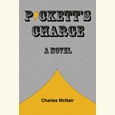Jesus Gets Us, But Do We Get Him?
Amy-Jill Levine makes a case for understanding the historical Jesus
Jesus for Everyone: Not Just Christians by Vanderbilt professor Amy-Jill Levine was originally called Jesus for Atheists, a title the author admits was catchier and more marketable, but not quite accurate. The historical Jesus, Levine explains, also speaks to those who are religious but not Christian, those who are not religious but spiritual, those who have been hurt by the church and left it, and those Christians who have stayed in the fold.

Levine asks us to examine the human Jesus and his teachings in the context of the historical environment in which he and his followers lived: a Jewish environment. To do so, Levine argues: “can help us get through the day and even help us sleep better at night, by prodding us to ask the right questions, consider various options, and recognize that while our conclusions will necessarily be tentative, we must do the work. We cannot be ‘the light of the world’ if we put our heads in the sand.”
Jesus for Everyone is Levine’s attempt to help readers find a way to understand Jesus as the Jewish man he was, the traditions he knew, and the messages he truly cared about. (Spoiler alert: These may not be the ones trumpeted on social media and from some pulpits.) It may be hard for some Christians to read the scriptures without the layers of religion instruction received through years of Bible school or catechism. Levine realizes it’s a heavy task, but she warns that “if a text means the same to us when we are six years old and then when we are sixty-six (I speak personally here), something has gone wrong, and it hasn’t gone wrong with the text.”
Jesus was part of a Jewish tradition in which analyzing and even disagreeing with a teacher, text, or the divine was considered normal. Therefore, he would have expected his listeners to analyze and reflect on his words, not merely accept them. Also, Jesus had never heard of democracy, the Second Amendment, vaccinations, or gender-affirming care (although he seems unbothered by eunuchs). However, that doesn’t mean he’s not relevant today. As Levine puts it, “This book asks how Jesus and the Gospels can get us through the minefields of today’s culture wars in such a way that we bind up wounds rather than blow up bodies.”
 A Jewish scholar, Levine dismantles the antisemitic overlay that accompanies many readings of the New Testament. “We do not have to make Judaism look bad in order to make Jesus look good,” she writes. For Christian readers, it can be uncomfortable to realize how many wrong things have been taught over the years. Levine debunks some of the more common falsehoods: Jews do not “equate wealth with righteousness and poverty with sin.” Jewish people did not believe in leaving the injured to die on the Sabbath. And that interpretation of scripture that lets many people off the hook about giving up possessions? “Equally wrong is the popular claim that ancient Jerusalem had a low clearance gate, such that owners needed to unpack the burdens their camels carried and have the animals bend to enter.”
A Jewish scholar, Levine dismantles the antisemitic overlay that accompanies many readings of the New Testament. “We do not have to make Judaism look bad in order to make Jesus look good,” she writes. For Christian readers, it can be uncomfortable to realize how many wrong things have been taught over the years. Levine debunks some of the more common falsehoods: Jews do not “equate wealth with righteousness and poverty with sin.” Jewish people did not believe in leaving the injured to die on the Sabbath. And that interpretation of scripture that lets many people off the hook about giving up possessions? “Equally wrong is the popular claim that ancient Jerusalem had a low clearance gate, such that owners needed to unpack the burdens their camels carried and have the animals bend to enter.”
Levine looks at five areas where she believes readers can learn from having a discussion with Jesus: economics, enslavement, ethnicity and race, family values, and politics. In addition to pointing out the antisemitic misconceptions, Levine also questions some of the human Jesus’ decisions. For example, he doesn’t have much to say about the evils of slavery. And did he consider the economic consequences to a farmer or a town when he drove the demons into swine and have them die? She gives readers questions to ponder about these issues and how we can be more loving to each other.
Levine argues that Jesus’ message was one of action. It is true that Jesus did not speak specifically about today’s hot-button issues, but he did speak quite clearly what it meant to serve the Lord. She quotes from a literal translation of Matthew 25, The Parable of the Sheep and the Goats:
“Come, the blessed ones of my Father, inherit the prepared-for-you kingdom from the foundation of the world. For when I was hungry, you gave me to eat, and when I was thirsty you gave drink to me, and when I was a stranger even you gathered together me. And naked, you clothed me, and sick/weak you visited/cared for me. And when I was in prison even you came to me.”
The parable may not speak directly to any of the culture war issues or the specific claims that politicians make about being Christian, but it addresses them all. It should make readers uncomfortable and reflective. These words of Jesus offer everyone — Christian, Jew and, yes, even atheist — a path to follow and, as Levine puts it, “a prompt for a meaningful life.”

Faye Jones, dean of learning resources at Nashville State Community College, writes the Jolly Librarian blog for the college’s Mayfield Library. She earned her doctorate in 19th-century literature at Indiana University of Pennsylvania.


